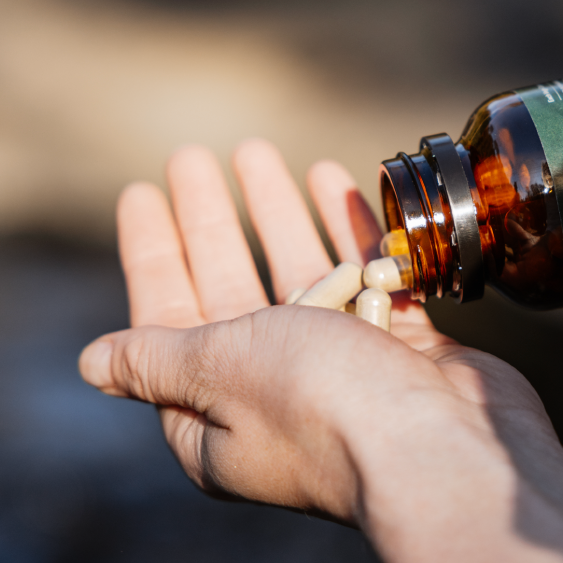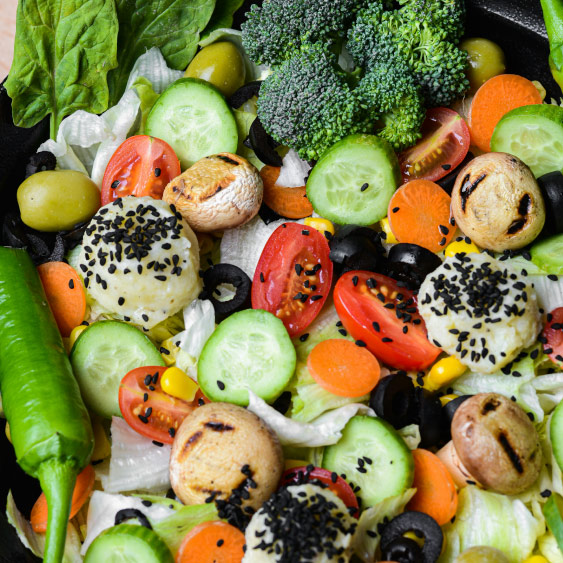It’s vital to understand that nothing in the entire world can replace a highly nutritious way of eating. Supplements are designed to supplement – not replace – a nourishing diet. But it is becoming increasingly challenging to get all the nutrients we need to avoid insufficiency or deficiency and so I am also a fan of supplementation.
Not all supplements are created equally and I want to make sure you’re not just wasting your money on shelf help that doesn’t benefit you in the ways you expect or need. Here are some essential tips to guide you in choosing the right supplements to enhance your health and fill in any nutritional gaps effectively.
1. Understand the bioavailability
The bioavailability of a supplement determines how much of what you ingest is actually utilised by the body. Some nutrients are enhanced when taken with others (like vitamin C enhancing iron absorption) or may require specific forms for better bioavailability (such as magnesium in citrate form versus oxide). This is a good reason to opt for supplements that are made from real food and/or herbs as the nutrients are in a form that the body knows exactly what to do with.
2. Prioritise high quality and/or practitioner only products
Practitioner-only brands have typically been formulated by people who understand nutrition, rather than marketers. They tend to offer formulations with more potent dosages of nutrients, too. That’s not to say you have to exclusively stick to practitioner only products, but consider the quality and potency of the products you purchase. Low cost supplements are often filled with cheap excipients (additives that make the handling of the manufacturing process easier) or other inactive ingredients that can diminish the overall effectiveness of the supplement or even trigger allergic reactions.
3. Consider your specific needs
Consider your specific needs when selecting supplements, as they are not one-size-fits-all. Take into account your diet, lifestyle, and any specific health concerns you might have. For example, if you avoid certain food groups due to allergies or preferences, you may need targeted supplementation to compensate for missing nutrients. Additionally, different life stages or circumstances, such as pregnancy, breastfeeding, or periods of intense stress, can increase your body’s need for certain nutrients. By understanding your dietary intake and the demands of your lifestyle, you can make informed decisions about which supplements are most suitable for you, ensuring your body receives the support it needs. A consultation with a qualified nutrition-focussed professional can also be valuable. Jenny Brooks is the senior consultant at the Dr Libby Clinic – you can read more about her here (LINK)
4. Simplicity is often key
A long list of ingredients doesn’t necessarily translate to better health benefits. Instead, look for products with fewer but more impactful ingredients that provide a concentrated dose of specific nutrients. This is particularly true for greens powders and/or multivitamins that may claim to offer comprehensive health benefits. Simplified formulations ensure that each ingredient is provided in a decent amount and serves a purpose, which not only tends to enhance the absorption of essential nutrients but also supports a more streamlined, effective supplementation routine.
5. Be mindful of inactive ingredients
Many products include additional ingredients to enhance shelf life, taste, appearance, or manufacturability. However, these can sometimes reduce the quality of the supplement, cause undesirable side effects, or negatively impact your biochemistry. Always scrutinise the ingredient list for unnecessary additives and opt for supplements that focus on purity and essential ingredients that support your nourishment.





